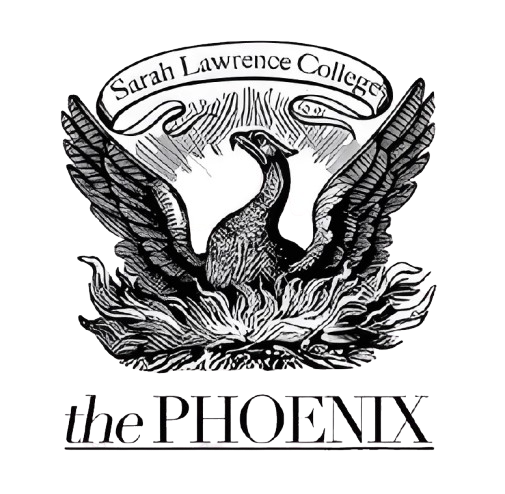Senate Brief: Diversity Training, Future of Black Squirrel
Black Squirrel. Photo Credit: Sarah Lawrence College.
FUTURE OF THE BLACK SQUIRREL AND STUDENT SPACES
Senate voiced its questions and strong opposition to the closing of the Black Squirrel and other student spaces to a representative from Student Affairs.
Ian Gonzalez, Senior Class President, used the floor to protest the school’s plan to close the Black Squirrel, milkshake bar and favorite student hangout. “I want this to be heard in Senate,” Gonzales opened. “Personally I’d like to work with the administration to find a reasonable solution.”
Josh Luce, Director of Student Involvement and Leadership at Student Affairs, confirmed to Senate the school’s intention to shut down the Black Squirrel. “The intention has always been for the Black Squirrel to be replaced,” Luce told Gonzales. Next year, AVI will provide similar services in the Barbara Walters Campus Center. Luce was clear to say that whatever replaces it “won’t be a milkshake bar.”
He explained that the spot’s revenue has mainly been brought in by events, and that on nights without open mics or movies don’t pay.
The Black Squirrel does not aim to recoup expenses. Instead, all the money it makes goes toward the SSSF and finances student aid. Student workers are paid out of the Student Activity Fund, which has a set amount of money per year earmarked for the Squirrel’s student wages. The school does not pay for SAF; students themselves are required to pay a certain amount towards the fund as part of their tuition. Despite the bar’s planned closure, students’ required contribution to SAF is going up by four dollars this year to $236 next year.
Along with the Black Squirrel’s intrinsic value, Gonzales also voiced his opposition to AVI “growing and growing and becoming the only food option on campus,” deeming it “not healthy.”
The closure of the Squirrel would end ten on-campus student positions—two space managers, seven milkshake baristas, and a designated ingredient buyer. Luce said that the new positions offered by the new Campus Center would offer students jobs staffing the information desk and setting up for events.
When asked why the Squirrel couldn’t find a new home in the Campus Center, Luce said that the floor plan for the Center was already locked in. “We have very limited space on campus. We barely have lounges in our residence halls,” he said.
Senators, however, reiterated their support for the Black Squirrel in its current form as a rare space on campus without “adult presence” as Treasurer Margaux Morris put it. “It seems like a really valuable space to me, and even more so with the campus center opening,” Morris continued. “It’s nice to have an open space in what will increasingly become a corner on campus.” Senators also noted the irony of discussing student isolation and then shuttering one of the most beloved student gathering places.
“I’ve had some of the best experiences in the Black Squirrel at open mics, playing pool with my friends, and having a milkshake made by someone I knew,” Gonzalez concluded.
“It’s not so much that there won’t be student jobs, it’s more that there is a late-night student hangout space that’s student run,” said Trace Bernardi, ’20, who works Wednesdays as a barista in the Black Squirrel.
Bernardi read a letter penned by the Thursday barista, Myles Lowrie-Otter, ’21, who could not be present. Lowrie-Otter noted the sense of unity that the Squirrel brings its workers and patrons. The letter also reflected on the spot’s history and the mementos stored in the bar: “Behind the counter my friends and I have found Sarah Lawrence treasures.”
Senators also clarified certain aspects of the new Campus Center’s food service, which will replace the Pub and will offer a café option open late, Luce said.
DIVERSITY TRAINING
Senators spent the first hour and a quarter of their session this week undergoing diversity training and discussing how to better facilitate productive and understanding conversations.
Real Talk Coordinator Alisha Thompson had senators write down one thing they felt could be improved in senate meetings. She listed certain “areas of improvement” on a whiteboard later in the session. They included tone policing, hiding behind senate formality, and not acknowledging privilege, among others.
Thompson also had senators discuss one time in each of their lives when they felt seen, and one time when they did not. She asked them to share the differences in emotion and reaction in those different moments.
Thompson encouraged senators to weave intersectionality into all areas of their lives, beyond even senate, “because institutionalized oppression does just that.”
COMMITTEE REPORTS
SSSF is still asking for skills or clothes to auction off during their auction this year which will raise money for their fund. During Publicity’s announcement, Senator Leia Tyebjee took the time to mention that there were unacceptable absences during both SAS and SSSF meetings, and that the heads of those respective groups have been “picking up slack.” Admissions and enrollment talked about a future collaboration with Student Life to work out a way to find proper vocabulary for student life for prospective students. General Committee discussed adding more 2- and 3-credit courses. Student Life is working on a survey of campus isolation and loneliness.
Jerry O’Mahony ‘19

